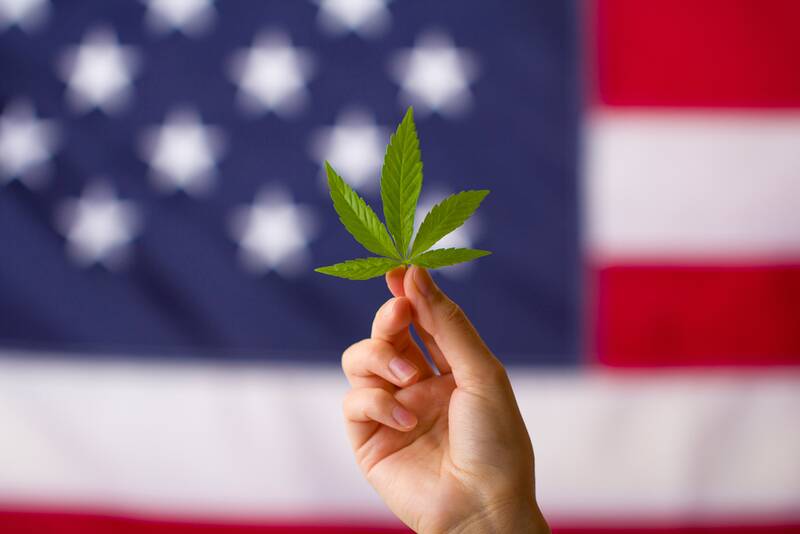The past couple of years have been whirlwinds — in terms of cannabis legalization, of course. No fewer than seven states have passed recreational regulations within the past 12 months, bringing the grand total of states with legal adult-use weed to 18. Factoring in the states that have introduced medical marijuana regulations, legal cannabis is now available in some form to some people in more than two-thirds of the country.
But for cannabis activists, now is not the time to rest on success. Instead, most weed lovers are eagerly looking for the next places likely to legalize weed According to experts, those places most likely include:
Hawaii
Hawaii’s cannabis culture is about as old and established as the one in California — so why hasn’t the island state legalized recreational pakalolo yet? The current governor, David Ige, has a long history of vetoing cannabis reform bills, which has stymied several adult-use regulations that the state legislature has sent his way. Ige is up for reelection in 2022, at which time Hawaiians could and should replace him with a 420-friendly governor who will enact recreational weed pronto.
Minnesota
In the Minnesota House, a bill officially known as HF600 was introduced in February with the intention of bringing legal weed to the Gopher State. Unfortunately, because Minnesota’s government isn’t controlled by a single party — the House is run by Democrats while Republicans lead the Senate — it isn’t likely that HF600 will become law. Instead, Minnesotans are more likely to pass a ballot initiative in 2022.
Wisconsin
Another Midwestern state with a moderate and mixed government, Wisconsin’s lawmakers are strongly considering introducing a legalization bill — but only to boost state tax revenues. In the past, attempts to decriminalize cannabis in Wisconsin have been thwarted, despite Wisconsinites’ overwhelming support of cannabis reform. Fortunately, the coronavirus pandemic has left the government searching for new sources of income, and after seeing the popularity of Denver dispensaries, Wisconsin wants in.
Maryland
The current cannabis bill in the Maryland legislature is ambitious — and it needs to be, to compete with neighboring Virginia where weed is already legal. Should the bill pass, it will give Maryland a program for licensing dispensaries, expunge prior cannabis convictions in the state, establish a cannabis social equity program and, perhaps most importantly, allow adult Marylanders to purchase, possess and consume weed.
Delaware
As is true in other states, the Delaware House has been trying to establish adult-use weed for years, but bill after bill has seen little movement through the legislature. The current governor is not an outspoken supporter of weed legalization, but he hasn’t stood in the way of marijuana initiatives, either. Because the states surrounding Delaware are making serious moves to legalize weed, it is likely that the First State will follow suit this year or next.
Rhode Island
The smallest state is fully in favor of legalizing weed — except when it comes to how Rhode Island’s legal market might function. While plenty of legislative leaders are partial to the traditional commercial model seen in most other states, some are holding out for a state-run model, in which dispensaries are owned and operated by the government. Experts expect the legislature to hammer out the details this session, so Rhode Island could have recreational cannabis regulations at the end of 2021.
Pennsylvania
Pennsylvania’s governor Tom Wolf has been pro-legalization since 2019, but the Republican-controlled legislature is dragging its feet in giving Pennsylvanians recreational regulations. Recently, some lawmakers have kicked around the idea of state-run dispensaries, which would mirror the state’s policy on alcohol, and farmers eager to introduce a cash crop like cannabis are in support. Yet, because the legislature remains largely opposed to legalization, Pennsylvanians will need to pass a cannabis measure themselves in 2022.
Conclusion
In less than a decade, the U.S. has gone from no recreational cannabis regulations to an avalanche of legalization initiatives. Today, over two-thirds of Americans agree to legalize weed — some for the opportunity to use the drug with impunity, others for the undeniable tax-related benefits of bud. As more states establish recreational regulations, the Federal Government will be forced to reconsider its stance, which means the end of cannabis prohibition in the U.S. could be in sight.

















